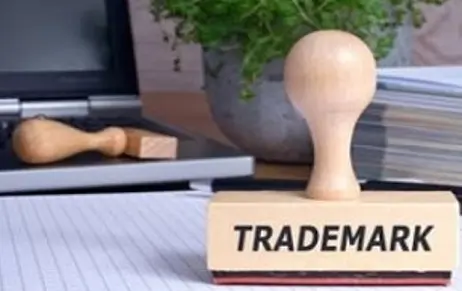TRADEMARK A trademark is something that we encounter on a regular basis. It is the…
Usage of a registered trademark as keywords in the Google Ads Program would amount to trademark infringement?
Introduction
Recently, The Delhi High Court issued an order granting an interim injunction in favor of Makemytrip (Plaintiff) in the case of MakeMyTrip India Private Limited vs Booking.com B.V. & Ors. The Court was analyzing whether the use of trademarks as keywords on the Google Ads Program will amount to trademark infringement or passing off. Justice Pratibha M Singh held that it is a widely accepted view that such invisible use of the registered trademark would amount to infringement and therefore, Defendants were restrained from using Plaintiff’s trademark as keywords on Google Ads Program. This article will take you through the relevant facts of the case followed by key issues involved and the reasoning of the Court.
[Image Sources : Shutterstock]
RELEVANT FACTS
In the instant case, Plaintiff registered www.makemytrip.com as the domain name way back in the year 2000. Furthermore, it is the registered proprietor of the trademark MakeMyTrip across a number of classes including 9, 35, 34 & 43 for many years and claims to use this mark in several other countries as well. The plaintiff has been utilizing the aforementioned mark for the past 22 years in a variety of variations and logo designs. Additionally, it has spent a large sum of money promoting and advertising its services. The Defendants are also involved in similar type of business of an online travel portal.
The plaintiff had filed suit for a permanent injunction against a defendant who is using the Plaintiff’s registered marks as keywords on the Google Ads Program as a means to promote his services by the way of advertisements when the search results are displayed on the Google search engine. Plaintiff states that when a Google search is carried out for MakeMyTrip, many times, the first advertisement which is displayed in the advertisement column is of Defendant no. 1. Therefore, Plaintiff submits that the misuse of Plaintiff’s registered mark by the Defendant no. 1 would constitute infringement u/s 29(6)(d), 29(7) and 29(9) of the Trade Marks Act, 1999 (‘Act’).
On the other hand, Defendant no. 1 relied on the Guess judgment[1] and submitted that there cannot be any bidding restrictions on the use of the phrase or exact mark which also includes trademarks. Therefore, any such injunction restraining Defendant no. 1 from bidding on a trademark would violate or contravene laws of foreign jurisdictions and will be contrary to the competition law. It was further argued that the use of generic words such as ‘make’, ‘my’, ‘trip’ are allowed in accordance with sections 34 and 35 of the Act.
ISSUES INVOLVED
- Whether the encashment of the goodwill and reputation of a registered trademark by third parties by bidding on it as a keyword through the Google Ads Program would amount to infringement and passing off or not?
- Whether the use of a registered trademark as a keyword through the Google Ads Program would constitute misrepresentation?
KEY REASONING
Infringement under section 29 of the Act
The Court, while throwing light on the working mechanism of the Google Ads Program, opined that by utilizing a registered trademark as a keyword, this service establishes a platform for two competitors to compete for improved search engine visibility. Therefore, it forces the trademark proprietor to bid for his own trademark to ensure that advertisements of his goods/services are reflected on the Google search and not hijacked by any competitor. In order to prevent competitors from using the registered trademark to advertise their goods and services, the trademark proprietor has to make significant daily investments in the Google Ads Program. Thus, the Court was considering whether such an action was justified given it amounted to taking advantage of the reputation and distinctiveness of the Plaintiff’s mark.
Based on above factors, the Court observed that Google is encashing the goodwill of the trademark proprietor by allowing the competitor to bid the said mark as a keyword. It was opined by the Court that it would amount to infringement under section 29(6)(d) read with section 2(2)(b), this is because Defendant No. 1 is using Plaintiff’s trademark, even though the same use is invisible, for advertising to divert the traffic to his website from the Plaintiff’s website. To interpret the word ‘use’ as defined under section 2(2)(b), the court relied on the landmark case of DRS Logistics v. Google India Pvt. Ltd, [2] wherein it was observed that the invisible use of a mark can also result in trademark infringement. Moreover, in the case of People Interactive (I) Pvt. Ltd v. Gaurav Jerry[3], it was held that the invisible use of the registered trademark by non-proprietors dilutes the mark and the same can be equated to online piracy. Therefore, the Court interpreted the word ‘use’ to include the hidden use of the registered trademark.
Furthermore, the Court prima facie opined that this practice of cashing in on the goodwill of Plaintiff’s mark by Defendant no. 1 amounted to taking unfair advantage of the Plaintiff’s mark attracts section 29(8)(a) as well and constitutes infringement under the said section.
The Court also stated that the use of the trademark on the Google Ads Program would also constitute infringement under Section 29(4)(c). A perusal of stated section shows that if any party takes unfair advantage of the distinctive character or repute of a registered trademark, without justification, then it would also amount to infringement in addition to violating sections 29(6) and 28(7) of the Act.
As far as the Guess Judgment[4] was concerned, the Court stated that the factual context of that judgment was entirely different from the present case; hence the same was not applicable in the present case.
The claim of Passing off
With regards to the claim of passing off, the court ruled that the one of the essentials of passing off is a misrepresentation made by the Defendant which is meant to cause damage to the Claimant’s business or goodwill. The traditional view that holds that the invisible use of marks as keywords will not constitute passing off was completely discarded by the Court. The Court relied on Kerly’s law of Trademark Marks and Trade Names[5] which mentions that third party bidding on trademarks as sponsored keywords for use by internet search engines like Google can constitute misrepresentation. Therefore, the invisible use of Plaintiff’s trademark as a keyword will amount to passing off. The Court further clarified that this would not prevent Plaintiff to use his own trademark as a keyword if he/she wishes to do so.
JUDGMENT
Based on the above reasoning, the Court concluded that the using the Plaintiff’s registered trademark as a keyword on the Google Ads Program would amount to trademark infringement. Such usage of the registered trademark by competitors will negatively impact the Plaintiff’s monetary interest and will also affect its brand recognition. Since the balance of convenience lied in the favour of the Plaintiff and irreparable injury would be caused to Plaintiff if the injunction is not granted; the Court was pleased to issue an order restraining Defendants from using the mark ‘MakeMyTrip’ together/in conjunction, with/without spaces to use it as a keyword on Google Ads Program.
CONCLUSION
The decision of the Honorable Court in the instant case is one of the additions to cases wherein the Court has confronted the issue of using registered trademarks on the Google Ads Program. Though the Courts have been dealing with the issue earlier too, it’s high time there is an introduction of legal provisions dealing with such use to provide much-needed clarity.
Author: Saakshi Khandelwal, Maharaja Agrasen Institute of Management Studies, GGSIPU, in case of any queries please contact/write back to us via email to chhavi@khuranaandkhurana.com or at IIPRD.
[1] Case AT. 40428-GUESS
[2] 2021 (88) PTC 2017 (Del).
[3] MIPR 2014 (3) 101
[4] Id 2.
[5] 15th Ed., p. 628 &629




